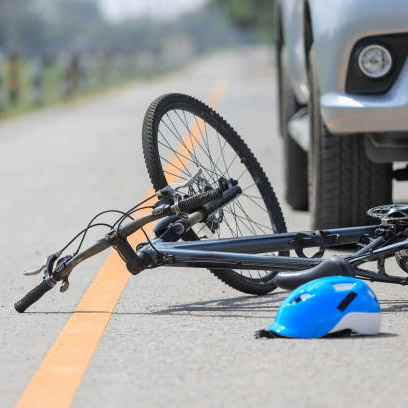w Guest Writer – Gordon Hadfield, Hadfield Stieben Doutt, LLC
Guest Writer – Gordon Hadfield, Hadfield Stieben Doutt, LLC
It is terrifying to be hit by a car while riding your bicycle. Even when the physical injuries have healed, the psychological trauma remains. Some common phrases we frequently hear from bicyclists are:
“I’m not going to ride on the road anymore.”
“I get nervous riding my bike around the block.”
“Bicycling causes me anxiety.”
“I need to find a different form of exercise.”
“I’m not going to bike anymore.”
Many injured people think these complaints are not serious enough to seek therapy. They minimize the mental ramifications of the bike crash. But these injuries are real. A European study found that PTSD is common after road traffic accidents. As you would expect, PTSD was more prevalent in crashes resulting in severe injuries that required longer hospitalizations. Regardless of the severity of the crash, 18% of those involved in any crash suffered from PTSD after six months. The study also found that early identification of PTSD was key to recovery. European Archives of Psychiatry and Clinical Neuroscience, Vol. 248, pages 316–321 (1998).
In our experience, bicycle crashes are much more likely to result in PTSD than car crashes. The trauma is more severe; the crash is unexpected. Moreover, bicyclists mourn the loss of their favorite form of transport and exercise. Losing the ability to ride often results in major life changes and a decrease in physical fitness. The results are not pretty. As we all know, physical exercise improves mental health.
The injured bicyclists who recover are those who seek mental health services. If you have been involved in a bike crash, seek mental health services promptly. Don’t blow it off or think it will resolve on its own. Don’t know or have anyone to call? We can help. Feel free to reach out or give us a call.
Gordon Hadfield is an experienced and strategic trial lawyer. Gordon takes pride in personally serving his clients and meeting with them face to face to understand their goals and expectations.

